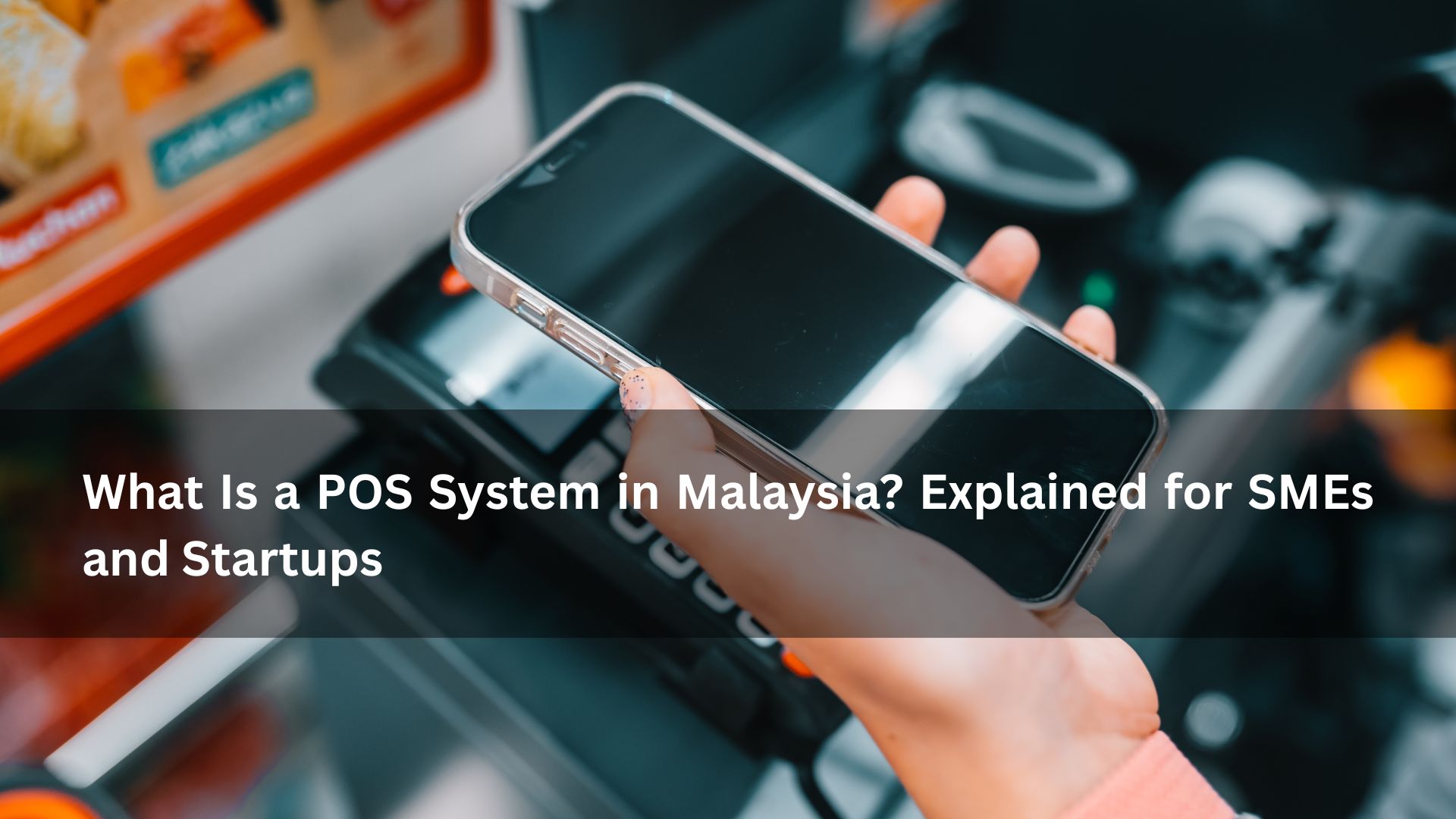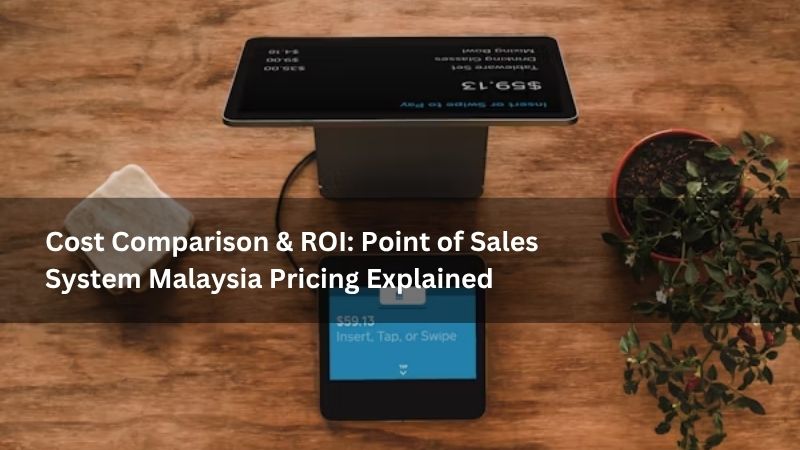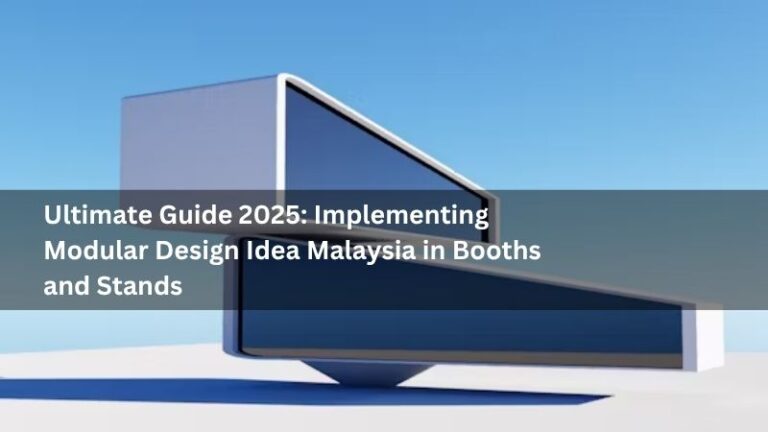A POS System Malaysia (Point of Sale System) is much more than a digital cash register. It’s a comprehensive business tool used to manage sales, inventory, customer interactions, and employee performance—all in one system. For SMEs and startups in Malaysia, the adoption of a POS System Malaysia can be the difference between growth and stagnation.
In this guide, we’ll explain what a POS System Malaysia is, how it works, why it’s important, and how to choose the best one for your business in 2025.
Introduction to POS System Malaysia
So, what is a POS System Malaysia exactly? Simply put, it’s the technology that enables businesses to process transactions and manage backend operations.
Main Components of a POS System Malaysia:
Hardware: Tablet, touchscreen monitor, receipt printer, barcode scanner, cash drawer
Software: Cloud-based or local, with modules for sales, inventory, CRM, and reporting
A POS System Malaysia connects the front-end (customer interaction) with back-end (inventory and accounting), offering complete operational visibility.
Why SMEs and Startups Need a POS System Malaysia
For small and growing businesses, efficiency and data accuracy are critical. A POS System Malaysia helps address these pain points.
Key Benefits:
Faster checkout and better customer service
Real-time sales data and reporting
Automated inventory tracking
Easier tax and SST compliance
Staff performance tracking
Whether you’re running a café, retail outlet, or salon, the right POS System Malaysia can significantly improve your operations.
Core Features of a POS System Malaysia
Every POS System Malaysia comes with a variety of features that can be customized based on industry needs.
Essential Features:
Sales Management: Process transactions, discounts, refunds
Inventory Control: Track stock levels, auto-replenishment alerts
Customer Relationship Management (CRM): Loyalty programs, customer profiles
Employee Management: Role-based access, clock-in/out
Analytics & Reporting: Daily summaries, product performance, profit margins
Payment Integration: Cash, credit cards, e-wallets like GrabPay, Boost, TnG
E-Invoicing: Compliant with LHDN Malaysia regulations for 2025
The more comprehensive the POS System Malaysia, the more control you have over your business.
Types of POS System Malaysia: Cloud vs On-Premise
Choosing the right type of POS System Malaysia depends on your business model and budget.
Cloud-Based POS System Malaysia:
Accessible anywhere with internet
Lower upfront cost
Automatic updates and backups
Ideal for startups and multi-outlet businesses
On-Premise POS System Malaysia:
Locally hosted with no need for internet
Higher setup and maintenance costs
Full control over data
Suitable for businesses with stable infrastructure
In 2025, most SMEs are shifting to cloud-based POS System Malaysia for flexibility and cost efficiency.
Industries That Benefit Most from POS System Malaysia
A POS System Malaysia is versatile and serves a wide range of industries.
Industry Applications:
Retail
Barcode scanning
Variant tracking (size, color)
Multi-outlet stock management
Food & Beverage
Kitchen Display System (KDS)
QR Code Order & Pay
Table and takeaway management
Perfect use case for restaurant POS System Malaysia
Services
Appointment scheduling (salons, clinics)
Package tracking
CRM and customer reminders
From fashion outlets to bubble tea shops, POS System Malaysia helps you deliver a seamless experience.
How to Choose the Right POS System Malaysia in 2025
There are many providers in the market, but not all systems are created equal. Here’s how to choose the best POS System Malaysia for your business:
Step-by-Step Selection Guide:
Define your needs: Retail, F&B, services?
Set your budget: Include hardware, software, and support costs
Choose cloud or on-premise: Based on mobility and internet reliability
Check compatibility: Payment methods, SST invoicing, CRM tools
Test the system: Use demos or free trials
Evaluate support: Look for local service and multi-language support
Top providers like ZEONIQ, StoreHub, BIG POS, and Slurp! offer scalable POS System Malaysia options.
Government Incentives to Adopt POS System Malaysia
The Malaysian government supports digitalization for SMEs through various initiatives.
Available Grants:
SME Digitalisation Grant: 50% matching grant for digital solutions
MDEC programs: Offers training and tech adoption subsidies
LHDN e-Invoice compliance: Encouraging businesses to adopt compliant POS System Malaysia platforms before the 2025 mandate
These incentives reduce the cost barrier for SMEs adopting new technology.
Common Mistakes to Avoid When Choosing a POS System Malaysia
Avoiding these pitfalls can save you time, money, and operational headaches.
Mistakes to Watch For:
Choosing based only on price
Ignoring integration needs
Overlooking mobile and cloud capabilities
Not considering scalability
Failing to request a demo
A smart decision today ensures your POS System Malaysia continues to support your growth tomorrow.
The Future of POS System Malaysia in a Digital Economy
The role of a POS System Malaysia will continue to evolve in line with consumer expectations and tech trends.
Upcoming Trends:
AI-driven business insights
Social media integration (e.g., TikTok Shop)
Voice ordering and self-service kiosks
Blockchain-based payments
Omnichannel sales tracking
In short, a POS System Malaysia is no longer optional—it’s a foundational element of modern business.
Conclusion: Empower Your Business with the Right POS System Malaysia
Understanding what a POS System Malaysia is—and how to choose the right one—can dramatically improve your business performance.
With the right solution in place, you’ll gain better control, increase efficiency, and enhance the customer experience. Whether you’re running a cozy café, fashion store, or service center, a tailored POS System Malaysia can help you scale with confidence.
Start evaluating your options today and future-proof your SME with a powerful POS System Malaysia that grows with your ambitions.









